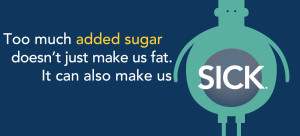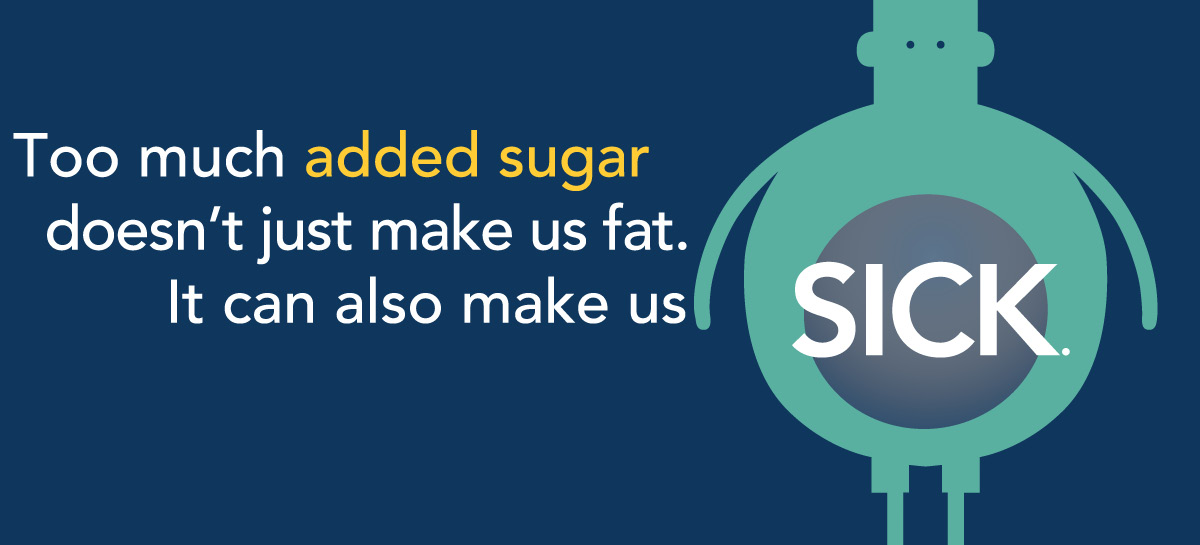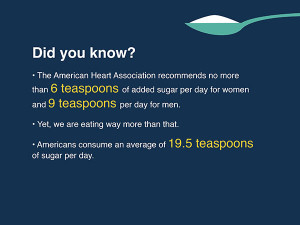Once upon a time, there was a young girl, about 10 or 11. She would head home after school with great anticipation of a completely empty house for a full hour and a pantry full of goodies just waiting. The pantry was a kid’s paradise with a dedicated shelf loaded with all kinds of cookies, crackers and chips. Then, there was the secret stash. This was above the refrigerator and was where the hard-core sugar was. The orange slices, fruit sour balls, M&M’s, Skittles, you name it, it was up there. Oh yes. It was awesome.
This little routine of bingeing on sugar-laden snacks went on swimmingly for quite some time. Until. One day, a friend came over to play after school. Being the good little hostess, the little girl invited her friend to indulge in the cookies, crackers and chips too. And, then to really be a good hostess, she showed her the secret stash as well. But, about part way through the indulgence, the friend commented on how she was stuffed and couldn’t believe how much they had just eaten! The little girl was crushed. What? ‘I’m not done yet!’
And then later, the first inkling that maybe, just maybe, those snack binges weren’t such a good idea. Uh-oh.
Who was that girl? That young girl was me.
We know that sugar is highly addictive. In fact, it has even proven to be more addictive than cocaine. Yes, more addictive than cocaine. A research study done in Australia gave rats the option to have sugar-laden water or cocaine water. What did the rats ultimately choose? The sugar water. The rats preferred sugar over cocaine.
“Our findings clearly demonstrate that intense sweetness can surpass cocaine reward, even in drug-sensitized and -addicted individuals. We speculate that the addictive potential of intense sweetness results from an inborn hypersensitivity to sweet tastants. In most mammals, including rats and humans, sweet receptors evolved in ancestral environments poor in sugars and are thus not adapted to high concentrations of sweet tastants. The supranormal stimulation of these receptors by sugar-rich diets, such as those now widely available in modern societies, would generate a supranormal reward signal in the brain, with the potential to override self-control mechanisms and thus to lead to addiction.”
The sugar-rich diets have the potential to override self-control mechanisms and lead to addiction.
We were never designed to have this much sugar. We often speak of eating in moderation, but what is moderation, really? How do we find moderation again? Today the average American eats about 19.5 teaspoons of sugar each day, or an average of 66lbs of added sugars each year. (That is above and beyond the sugars naturally found in certain foods.)
In our society, sugar has become ubiquitous with just about every occasion, reason and season and we haven’t really noticed how much we are consuming. What was once something we consumed on the very rare occasion has become a staple in our diet and the health consequences have followed.
 Our challenge is that sugar is highly addictive, so how do we get off this roller coaster? Like with everything with food, you first have to become aware of just how much you are actually eating. It has become a common courtesy to offer a sugar for just about everything. Cash a check, grab a coffee, stop at a co-worker’s desk, even at the chiropractor’s office you will find sugar ready to tempt you. How often do you dip into the office ‘treat’ bowl (or table)? Did you realize how often? Now, how often do you actually sit down to enjoy that candy or treat? Do you actually taste it? Do you take note of how it impacts your brain, mood and energy over the next hour? What about the next two hours? Do you find that you can’t have just one?
Our challenge is that sugar is highly addictive, so how do we get off this roller coaster? Like with everything with food, you first have to become aware of just how much you are actually eating. It has become a common courtesy to offer a sugar for just about everything. Cash a check, grab a coffee, stop at a co-worker’s desk, even at the chiropractor’s office you will find sugar ready to tempt you. How often do you dip into the office ‘treat’ bowl (or table)? Did you realize how often? Now, how often do you actually sit down to enjoy that candy or treat? Do you actually taste it? Do you take note of how it impacts your brain, mood and energy over the next hour? What about the next two hours? Do you find that you can’t have just one?
The first step in addressing sugar in the diet is to pay attention to sugar in the diet. We eat mindlessly and sugar is no exception to this. We like to ‘grab and go’. All too often candy or sweets are readily available for you to grab without a second thought. And then, you want more. The process has started.
Remove the guilt. One way or another, we all have had our battles with sugar. How could we not?
This week, start to become more conscious of the sugar you are consuming. Take time to start a food journal and log it either with pen and paper or online through myfitnesspal.com. Now it is time to become aware and make choices based on that awareness. Keep me posted, I love hearing about people’s experiences and your experience may just inspire someone else, so don’t hold back.
Next week, come back and we will continue our discussion and continue talking about steps to reclaim your health through food. You can do this!



